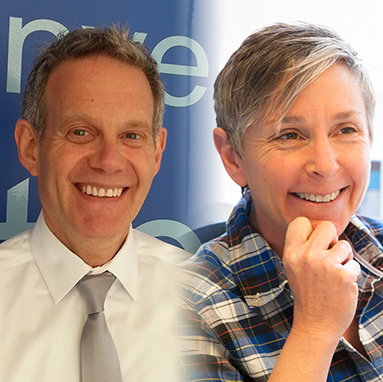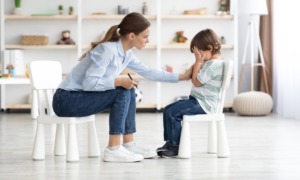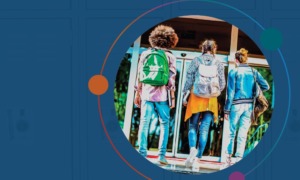 The evidence is clear and alarming: Teens who identify as lesbian, gay, bisexual or transgender (LGBTQ) are more likely to use drugs and alcohol than their non-LGBTQ peers. Public health research shows that LGBTQ teens have three times the odds of using drugs like heroin and cocaine compared to their non-LGBTQ peers. They also have 1.3 times the odds of heavy drinking and 1.6 times the odds of marijuana use.
The evidence is clear and alarming: Teens who identify as lesbian, gay, bisexual or transgender (LGBTQ) are more likely to use drugs and alcohol than their non-LGBTQ peers. Public health research shows that LGBTQ teens have three times the odds of using drugs like heroin and cocaine compared to their non-LGBTQ peers. They also have 1.3 times the odds of heavy drinking and 1.6 times the odds of marijuana use.
It might be easy to read these statistics and assume that LGBTQ teens are rebellious, irresponsible or somehow flawed. The truth, however, is something quite different. During their crucial teenage years, LGBTQ youth are too often failed by their families, schools and communities — the very institutions that should be aiding, guiding and supporting them as they grow to adulthood.
Our deep concern about substance abuse among LGBTQ youth has prompted our two organizations to join forces. We are addressing the crisis by helping parents, educators and other youth-serving professionals understand the unique challenges — including bullying and family rejection — LGBTQ youth face.
Today, we are jointly issuing recommendations designed to aid adults in reducing the risk of substance abuse by LGBTQ youth, and we are launching an initiative to expand the visibility and participation of LGBTQ youth in the Partnership for Drug-Free Kids’ national teen substance abuse prevention campaign, Above the Influence.
The need could not be more clear. Among 10,000 LGBTQ teens who participated in the Human Rights Campaign (HRC) Foundation’s Youth Survey, more than 90 percent had heard negative messages about being LGBTQ, and more than half had been verbally harassed at school. Only half reported feeling they could turn to an adult family member for help, compared to nearly eight in 10 non-LGBTQ youth. Additional research suggests that up to 40 percent of homeless teens may be LGBTQ, many forced to leave home when rejected by their parents.
[Related: Foster Care System Feels Shock Waves from Heroin Addiction]
Teens start drinking and using drugs for a variety of reasons, but research indicates that rejection at home and school accounts for much of the disparity in rates of substance abuse between LGBTQ and non-LGBTQ youth. One study found that fewer LGBTQ teens felt supported by the adults at their school — but those who did were no more likely than non-LGBTQ peers to use drugs or alcohol.
Whether figuring out how to discuss the risks of substance use, or getting a teen on the path to recovery, our new partnership emphasizes empathy, respect and positive feedback. These principles, when applied to preventing substance use among LGBTQ teens, can be summarized as follows:
- Parents and caregivers are encouraged to discuss their concerns and expectations about substance use with teens, focusing on health risks and ask teens to share their perspectives;
- Parents, educators and youth-serving professionals should actively affirm and support LGBTQ teens’ sexual orientation and gender identity;
- Educators and youth-serving professionals are urged to confront bias and create supportive environments for LGBTQ teens; and
- Policymakers should fund substance abuse prevention programs, address LGBTQ youth homelessness and eliminate zero-tolerance policies for drug violations.
Ultimately, LGBTQ teens are like other kids. They all need to feel safe and accepted, so that using alcohol or drugs won’t become a way to escape stress or social anxiety. They all need parents or other important adults in their lives to recognize and respond appropriately to warning signs of substance abuse. And they all need to be able to trust those adults enough to take their advice seriously and to ask for help if drugs or alcohol become a problem.
It is not inevitable that LGBTQ teens will continue to turn to drugs and alcohol at higher rates than their non-LGBTQ peers. We can’t tackle all the reasons teens use drugs and alcohol, at least not at once. But we can work to ensure that young LGBTQ people get the support and affirmation that every young person deserves, starting by looking out and standing up for LGBTQ teens in our families, schools, congregations and communities.
And when parents struggle to accept their child’s identity, we can remind them that — whatever their beliefs — the consequences of rejection are too serious to ignore.
Ellen Kahn is director of the Children, Youth and Families Program at the Human Rights Campaign Foundation, the educational arm of the nation’s largest LGBTQ advocacy organization.
Andrew Hertzberg is director of Youth Programs at the Partnership for Drug-Free Kids, a national nonprofit dedicated to reducing substance abuse among adolescents by supporting families and engaging with teens.
More related articles:
The Test of Time: Finding a Way to Stay Clean for My Daughter
Talking Intervention and Youth
Youth Impact: High School Students Lead Substance Abuse Prevention Efforts































